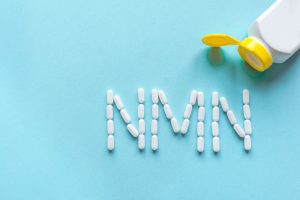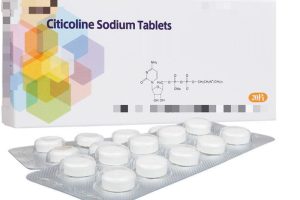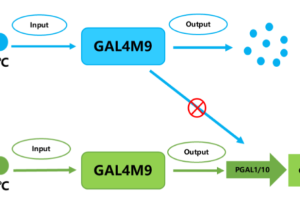Glutathione has received more and more attention as a health care product, and many people take oral glutathione supplements to improve health, enhance skin shine, whitening, and even anti-aging.
Many people will find that despite taking large amounts of glutathione every day, they don’t seem to see the desired effect.

Why isn’t the glutathione you’re eating working?
Let’s explore this question and hope this article gives you the answer you’re looking for.
Biological properties of glutathione
Before discussing this issue, we first need to understand the basic properties and functions of glutathione.
Glutathione is a tripeptide composed of three amino acids, glutamic acid, cysteine and glycine, which is widely found in plants and animals.
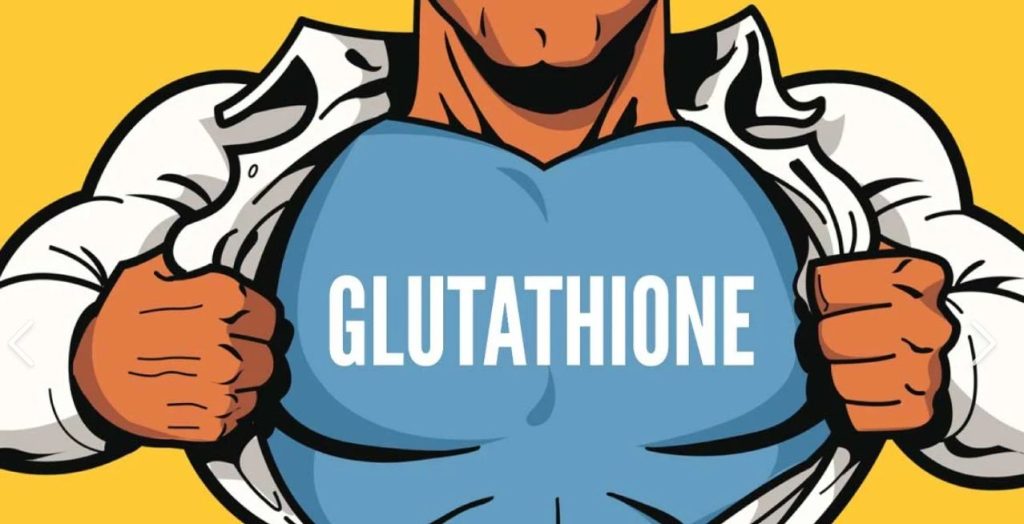
Known as the “guardian of the cell,” glutathione is present in every cell and is an important antioxidant in the body, able to neutralize free radicals, reduce oxidative stress and protect cells from damage.
Glutathione is also involved in a variety of biochemical reactions, including amino acid transport, toxin detoxification and so on.
Glutathione can lessen the effects of oxidative stress, but as you age, your body’s ability to produce glutathione decreases, making you more vulnerable to a range of diseases and health problems.
What problems are associated with reduced glutathione levels?
- Alzheimer’s disease
- cancer
- Chronic liver disease
- Cognitive impairment
- diabetes
- hypertension
- infertility
- Mental health disorders
- Multiple sclerosis
- parkinsonism
- Neurodegenerative disease

Although the role of glutathione in the body can not be underestimated, its absorption and utilization after oral administration is relatively complex.
The bioavailability of oral glutathione is low
When taken orally, glutathione passes through the digestive system, where stomach acids and digestive enzymes break it down into amino acids.
Although you may be taking a glutathione supplement every day, the amount of the active ingredient that ends up in your bloodstream may be minimal.
Even if glutathione is able to enter the bloodstream through the digestive system, the liver, as the primary metabolic organ, metabolizes and breaks it down further, reducing its effective concentration in the body.
The large molecular structure of glutathione makes it difficult to pass through cell membranes.
Even if small amounts of glutathione make it into the bloodstream, they may have difficulty effectively reaching the interior of cells.
Other factors affecting glutathione absorption
In addition to the inherent biological properties of glutathione that affect its absorption, there are many factors that affect individual absorption.
Genetic factor
Different individual genomes may affect the metabolism and utilization efficiency of glutathione.

For example, certain genetic mutations can reduce the activity of glutathione synthase, which affects the level of glutathione in the body.
Diet and lifestyle factors
Other components of the diet may also affect the absorption and utilization of glutathione.
For example, sulfur-rich foods, such as garlic, Onions, cruciferous vegetables, etc., can promote glutathione synthesis, while high-sugar and ultra-processed foods may inhibit its synthesis.
Certain nutrients, such as vitamin C, vitamin E, selenium, curcumin, silymarin, and n-acetylcysteine (NAC), promote glutathione production and regeneration.
If these nutritional synergies are ignored, glutathione supplementation alone may not be effective.
Poor lifestyle, such as smoking, alcohol abuse and lack of exercise, can also affect the level of glutathione in the body.
Disease state
Certain diseases, such as diabetes, liver disease, chronic inflammation, etc., may cause glutathione levels in the body to decrease, affecting its normal function.
Certain medications, such as acetaminophen and aspirin, can affect how glutathione works in the body.
Oxidative stress level
When the level of oxidative stress in the body is too high, the rate of glutathione consumption is accelerated, which may cause the supplemental glutathione to not meet the body’s needs.
Managing lifestyle and psychological stress to reduce oxidative stress is essential for maintaining glutathione levels.
How to effectively increase glutathione levels
There are a variety of ways to increase glutathione levels in your body, and a combination of diet, lifestyle, and supplements can help you increase your glutathione levels more effectively.
Supplement precursor substances:
Rather than directly supplement glutathione, it is better to choose its precursors, such as n-acetylcysteine (NAC), alpha-lipoic acid and taurine, which are more easily absorbed and utilized by the body to promote glutathione synthesis.
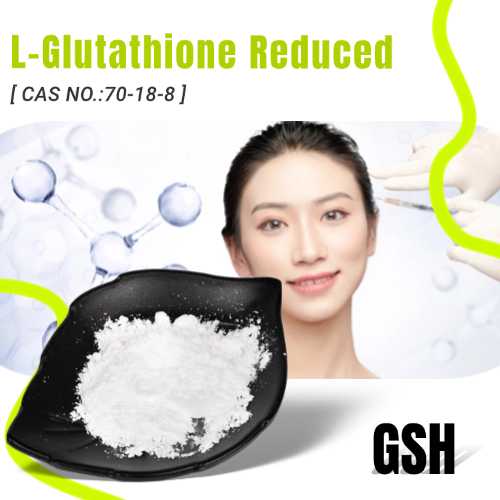
Eat more sulfur rich foods:
Sulfur is a key component of glutathione, and increasing your intake of sulfur-rich foods can help boost glutathione levels, such as garlic, Onions, cruciferous vegetables, etc.
Choose a highly effective form of supplement:
There are many forms of glutathione supplements on the market today, including oral tablets, powders, and injections.
Studies have shown that the injectable form of glutathione is more effective at increasing glutathione levels in the body than taking it orally.
Because it can directly enter the blood and avoid the decomposition of the digestive system, its disadvantage is that it requires high technical requirements, generally requires professional help, and many beauty salons are injected.
Some supplements use liposome or esterification techniques, which increase glutathione absorption by coating glutathione molecules with phospholipids, making them easier to pass through cell membranes and resistant to damage by stomach acid.
It is more readily available than the injectable form and is also highly bioavailable.
There are also glutathione supplements that may have added other synergistic ingredients, such as vitamin C, selenium, etc., which can work synergistically to improve the effect of glutathione.
Healthy Lifestyle:
Getting enough sleep, moderate exercise, and stress management are essential to boost glutathione levels, and a healthy lifestyle helps maintain the antioxidant balance in the body.
We also need to avoid those harmful factors in our lives, not smoking, not drinking, not eating ultra-processed foods, minimizing the use of plastic, and so on.

While supplementing with other nutrients:
Some studies have shown that antioxidants such as vitamin C and selenium can enhance the effect of glutathione, and consider supplementing it with glutathione.
Sum up
Although glutathione has an important role in antioxidant, detoxification and other aspects, but by oral supplementation of glutathione, it does not always achieve the desired effect.
Bioavailability, individual differences, form of supplementation, and other influencing factors may affect the effectiveness of supplementation.
When supplementing glutathione, we need to consider a variety of factors, choose the right supplement for ourselves, and combine a healthy lifestyle to improve its effect.
Liposome glutathione can try, bioavailability is high, will not let you eat for nothing.
Our recommendation is to supplement the precursors of glutathione.
Health is the result of comprehensive management, glutathione increase is only one link, the overall lifestyle health management is the key.



